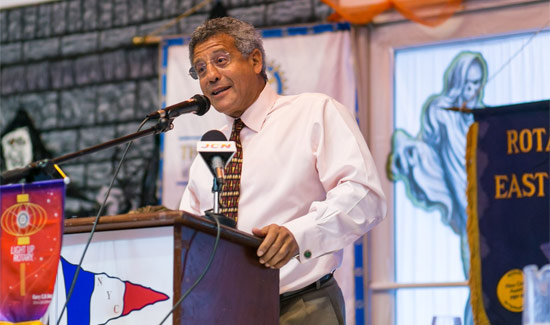Bahamians have a unique opportunity to solve a major financial and ethical issue while fixing a broken legal system.
A public session is being held on January 31 at 8:30am at UBS, East Bay Street. Bahamians interested in saving The Bahamas should attend.
Corruption, fixing cases and unethical lawyers have long been a part of the Bahamian legal system.
Attorneys in The Bahamas have used various non-disclosure laws to protect their financial crimes and their illegal collusion with known criminals.
Only the rich and privileged have access to justice, everybody else is predjudiced against and denied justice in the dysfunctional courts of The Bahamas.
Hiding behind professional privilege laws to engage in criminality is finally being addressed and the operations of lawyers needs to be more closely scrutinized.
Non-disclosure privileges have for too long been used by Bahamian lawyers to facilitate crimes.
With the advent of the new financial architecture at the turn of the new millennium, the regulation of professionals including lawyers was tightened slightly.
Finally, there is hope on the horizon that the Bahamian legal system will get the overhaul it needs.
Lawyers and attorneys launched a campaign way back in 2001, prompted by the Glinton-Esfakis case, to protect their money laundering and other criminal activities.
More than a decade later, the criminal activiy has only gotten worse and it is destroying the very fabric of Bahamian society and the reputation of The Bahamas in the international community.
As this matter is still sub judice, this commentary is not meant to discuss the merits of that case and should not be interpreted as such.
However, there is a ready solution to the corruption in the legal profession.
The solution is to have more scrutiny of lawyers and remove oversight from the Bar Association and give it to a panel of ordinary citizens whose morals and ethics are not compromised.
Currently, the ethics committee of the Bar Association does very little to ensure that lawyers carry out their “know your client” (KYC) anti-money laundering responsibilities.
Many Bahamian attorneys hide their criminal activities under the cloak of legal professional privilege.
The Canadian government has discovered this and taken action to challenge legal professional privilege regarding anti-money laundering laws.
The Canadianas have also implemented a no-cash rule on lawyers. As a result, lawyers cannot accept cash payments in excess of about C$7,500.
That additional rule is terribly important, because lawyers in The Bahamas are often the conduit or mailbox for large sums of illicit money to enter into the financial system.
Now, Bahamians have an opportunity to solve these long-vexing problems in the practice of law.
The Arbitration and Investment Forum is being held on January 31 at 8:30am at UBS, East Bay Street. Space is limited.
Secure your ticket today by contacting info@maynardlaw.com.
By: Fed up with legal corruption


